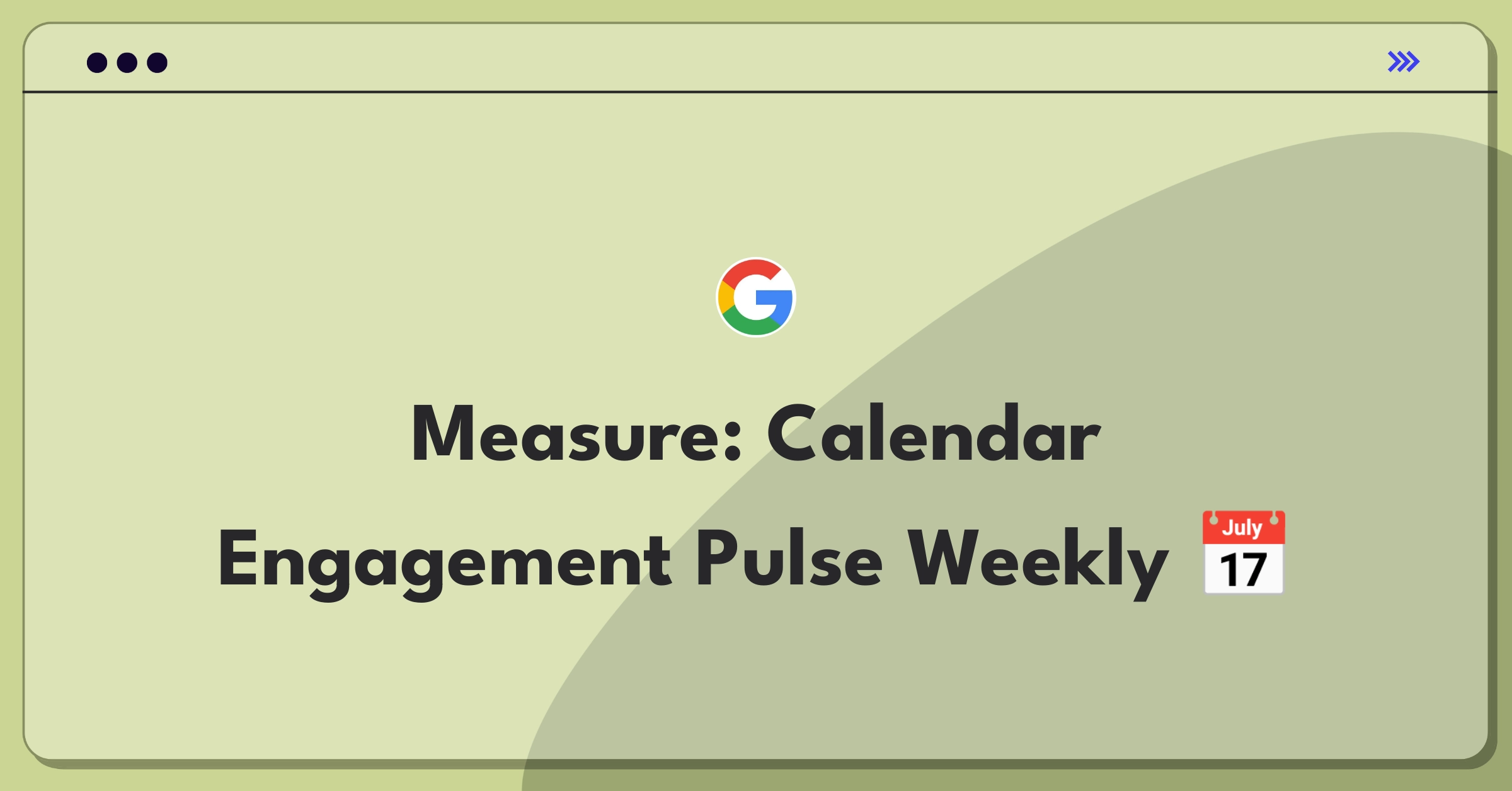Introduction
To approach this product success metrics problem effectively, I will follow a simple product success metric framework. I'll cover core metrics, supporting indicators, and risk factors while considering all key stakeholders for Google Calendar.
- The challenge is to identify the most impactful north star metric for Google Calendar
- I'll analyze the product context, goals, and metrics hierarchy
- My response will cover product context, goals, north star metric, supporting metrics, guardrail metrics, trade-offs, and counter metrics
Framework Overview
I'll follow a simple success metrics framework covering product context, success metrics hierarchy.
Step 1
Product Context (5 minutes)
Google Calendar is a time-management and scheduling service developed by Google. It allows users to create and edit events, set reminders, and share calendars with others. Key stakeholders include:
- End users (individuals and businesses)
- Google (as the service provider)
- Third-party app developers (integrations)
- Advertisers (potential revenue stream)
The primary user flow involves:
- Creating an event (date, time, location, attendees)
- Managing events (editing, deleting, responding to invitations)
- Viewing calendar (day, week, month views)
- Setting reminders and notifications
Google Calendar fits into Google's broader strategy of providing a comprehensive suite of productivity tools, integrating with other Google services like Gmail and Google Meet. It competes with other calendar apps like Apple Calendar and Microsoft Outlook, differentiating itself through seamless integration with Google's ecosystem and advanced features like smart scheduling suggestions.
In terms of product lifecycle, Google Calendar is in the maturity stage. It has a large user base and is continuously evolving with new features and improvements.
Software-specific context:
- Platform: Web-based and mobile apps (iOS, Android)
- Integration points: Google Workspace, third-party apps via API
- Deployment model: Cloud-based SaaS
Subscribe to access the full answer
Monthly Plan
The perfect plan for PMs who are in the final leg of their interview preparation
$99 /month
- Access to 8,000+ PM Questions
- 10 AI resume reviews credits
- Access to company guides
- Basic email support
- Access to community Q&A
Yearly Plan
The ultimate plan for aspiring PMs, SPMs and those preparing for big-tech
$99 $33 /month
- Everything in monthly plan
- Priority queue for AI resume review
- Monthly/Weekly newsletters
- Access to premium features
- Priority response to requested question


.png)